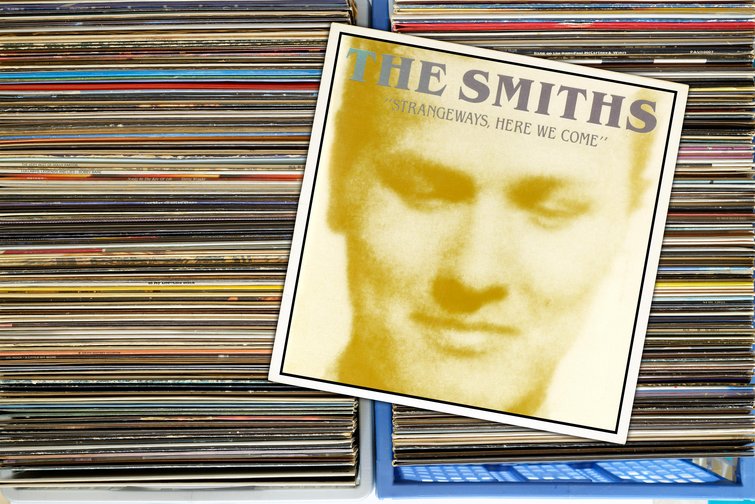The circumstances surrounding its creation have always undermined the impact of The Smiths’ final album, Strangeways, Here We Come. Less enlightened critics dismissed it as a damp squib following the big bang of the monolithic The Queen Is Dead, and the album’s supposedly fraught recording sessions are often given as the cause of guitarist Johnny Marr’s departure – and the band’s subsequent split – prior to the album’s release on 28 September 1987.
Divorced from the times, though, Strangeways, Here We Come (its name referring to Manchester’s notorious prison) cries out for reappraisal. Far from the runt of a spectacular litter, it’s arguably the band’s most sonically adventurous album and, in reality, the sessions that produced it were lively and harmonious.
Listen to ‘Strangeways, Here We Come’ here.
“I was in my element”
Holed up at Tears For Fears’ studio, The Wool Hall, in Bath, The Smiths worked closely with co-producer Stephen Street and, aside from Morrissey, who reputedly preferred an early night and his Sylvia Plath anthology, they often partied during down-time. In his 2016 autobiography, Set The Boy Free, Johnny Marr recalled the Wool Hall sojourn with fondness. “I was in my element,” he wrote. “I didn’t need to know what was going on in the outside world or see anyone other than the band and [my girlfriend] Angie… and I loved the new songs.”
The Mancunian quartet’s recent singles – the dense, anthemic Shoplifters Of The World Unite and the glam rock-inspired Sheila Take A Bow – served notice that The Smiths were keen to break new ground. Morrissey and Marr were of a mind that Strangeways, Here We Come would help The Smiths slough off their reputation as purveyors of jangly indie-pop.




